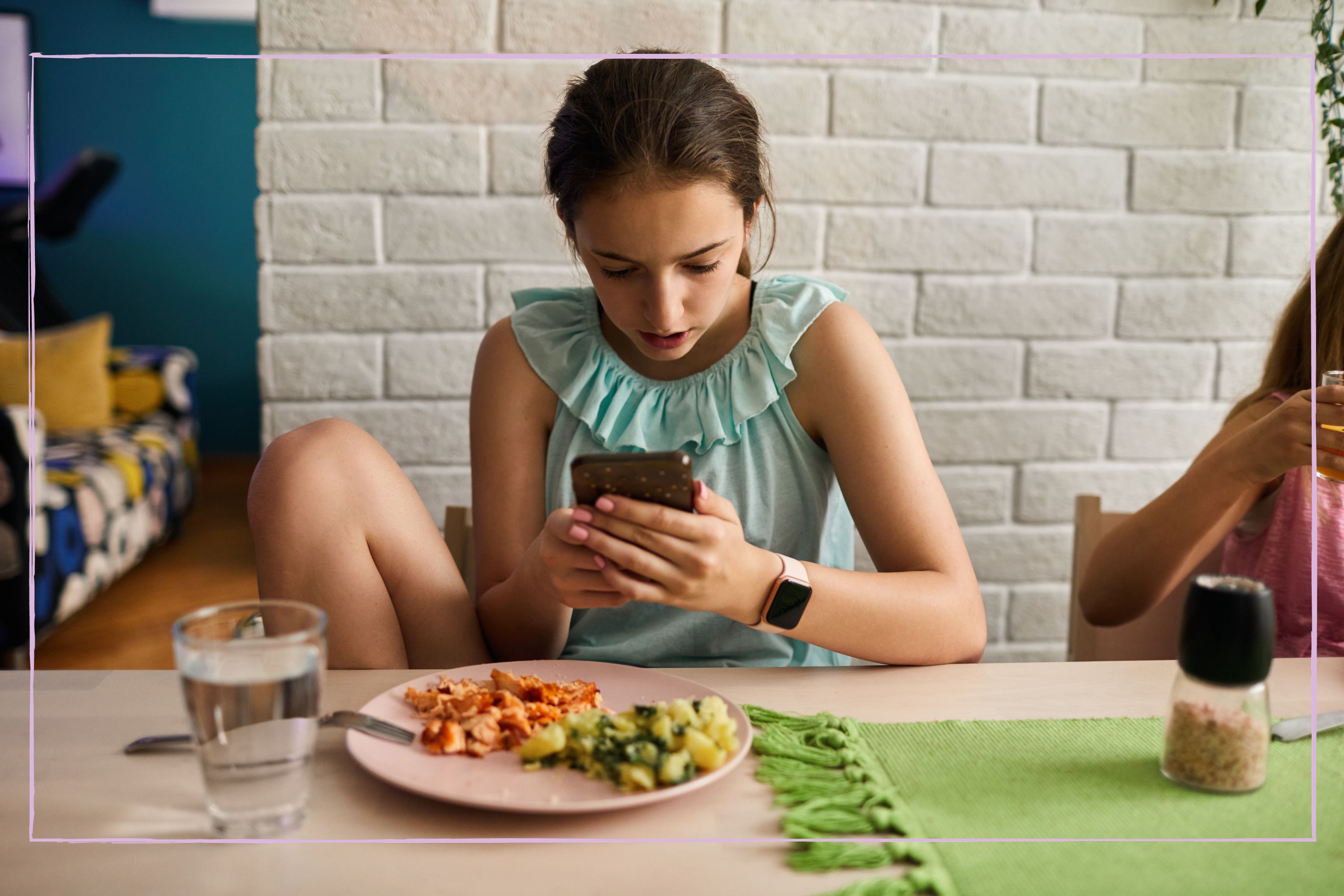Is your teenager always on social media? New study shows half of teens admit they’re addicted to it (but it’s also giving them these 7 life skills)
If your teenager cannot put down their phone, they're not the only ones, as a new study shows half of teens admit they're 'addicted' to social media


Parenting advice, hot topics, best buys and family finance tips delivered straight to your inbox.
You are now subscribed
Your newsletter sign-up was successful
Half of teenagers have admitted that they're 'addicted' to using social media, a new study has shown.
Millennials are surrounded by technology, whether it's using their mobile phones to text, call friends, and play games to doing their homework on the computer while streaming a movie. It can be a distraction and we all know someone who cannot eat their dinner without taking a photo of their plate to share online (parents included).
GoodtoKnow reported just last month that a new Facebook roll-out means parents are being advised to "think carefully" about letting their children use the social media platform.
As more people become exposed to the dangers of sharenting, knowing how to keep your kids safe online is quickly becoming a top priority for parents. And as more and more people suffer from burnout - with Gallup's 2022 survey of 15,000 workers finding a quarter of employees experienced burnout symptoms, it's only a matter of time before the employees of the future find themselves in that same situation.
Millennium Cohort, which conducted this new study as reported by The Guardian, has had some alarming findings that come amid the mounting pressure for tech companies like Facebook, TikTok and X (formerly Twitter) to be more accountable for the impact their platforms are having on users.
The latest research, by Dr Amy Orben’s team at the University of Cambridge, used data from the Millennium Cohort study which is tracking the lives of about 19,000 people born in 2000-2002 across England, Scotland, Wales and Northern Ireland.

Amy is a multi-award-winning psychologist studying how digitalisation and social media use impact adolescent mental health. She is leading the Digital Mental Health Group at the MRC Cognition and Brain Sciences Unit at the University of Cambridge.
When those involved in the study reached 16-17 they said they agreed or strongly agreed with a statement that reads, "I think I am addicted to social media" - with 57% of girls and 37% of boys among those who had that response.
Parenting advice, hot topics, best buys and family finance tips delivered straight to your inbox.
And while scientists don't think it's a clinical 'addiction', it does show a problematic relationship with social media.
“We’re not saying the people who say they feel addicted are addicted,” said Georgia Turner, a graduate student leading the analysis. “Self-perceived social media addiction is not [necessarily] the same as drug addiction. But it’s not a nice feeling to feel you don’t have agency over your own behaviour. It’s quite striking that so many people feel like that and it can’t it be that good.”
Everyone uses social media in different ways, not every child has obsessive behaviour and some excessive use could be driven by compulsive checking, while others may be relying on it to cope with negative life experiences, and then there's not forgetting those children who may simply be responding to negative social perceptions about “wasting time” online.
Social media can have its benefits, according to lifespan.org which reports on the good the bad and the ugly side of social media...
- Staying connected with family and friends worldwide via email, text, FaceTime, etc.
- Quick access to information and research
- Banking and bill pay at our fingertips
- Online learning, job skills, content discovery (YouTube)
- Involvement in civic engagement (fundraising, social awareness, providing a voice)
- Great marketing tools
- Opportunities for remote employment
Dr Andres Roman-Urrestarazu, a psychiatrist at the University of Cambridge and a UK lead for Bootstrap, a pan-European trial on problematic use of the internet, said that policies were needed that go beyond clinical solutions for individuals.
“Social media and major tech companies remain largely unregulated in the way they engage with people,” he said. “What I find interesting is that algorithms that are designed to increase sales tend to be particularly noxious and tend to produce these types of products that put vulnerable people at danger,” he said. “We need to push for algorithmic transparency.”
In other family news, “I’m NOT going to school today!” – how a parenting expert deals with the back-to-school battle and there's 3 activities to try if your child struggles with reading – and they don’t involve sitting down with a book.

Selina is a Senior Family Writer for GoodtoKnow and has more than 16 years years of experience. She specialises in royal family news, including the latest activities of Prince George, Charlotte, Louis, Archie and Lilibet. She also covers the latest government, health and charity advice for families. Selina graduated from the University of Sheffield in 2006 with a degree in Journalism, and gained her NCTJ and NCE qualifications. During her career, she’s also written for Woman, Woman's Own, Woman&Home, and Woman's Weekly as well as Heat magazine, Bang Showbiz - and the Scunthorpe Telegraph. When she's not covering family news, you can find her exploring new countryside walking routes, catching up with friends over good food, or making memories (including award-winning scarecrows!)